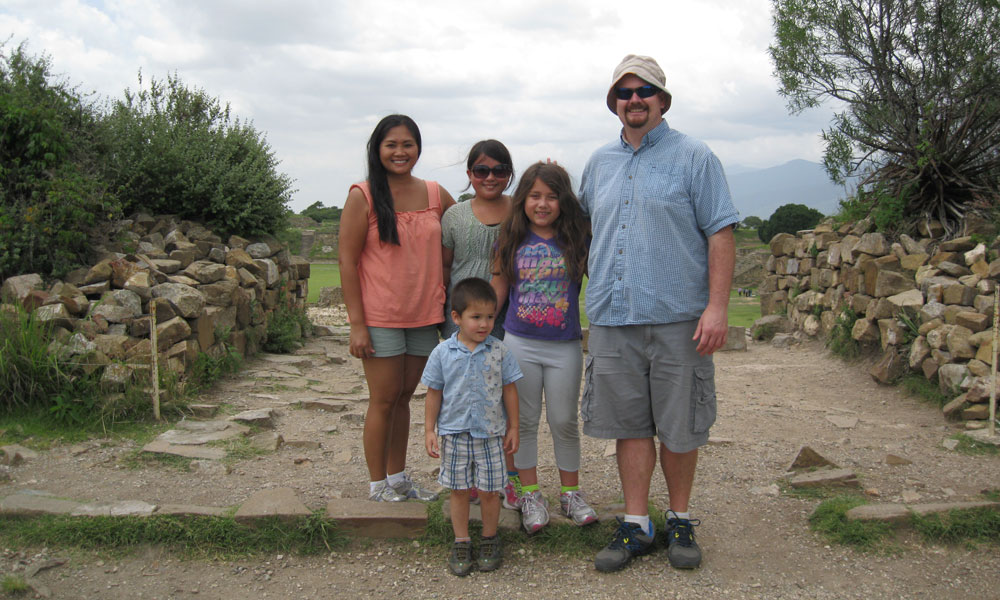

Deprecated: Implicit conversion from float 1751511246.089171 to int loses precision in /www/investmentzen_357/public/blog/wp-content/plugins/intelly-related-posts/includes/classes/utils/Logger.php on line 93
Deprecated: Implicit conversion from float 1751511246.089327 to int loses precision in /www/investmentzen_357/public/blog/wp-content/plugins/intelly-related-posts/includes/classes/utils/Logger.php on line 93
With a focus on saving and investing early, a high enough income, and the discipline to see your plans through, early retirement can become more than just a dream – it can become a reality you live with every day.
Don’t believe me? Take the story of Justin McCurry, the blogger behind RootofGood.com. By creating an early retirement plan, automating his finances, and putting his family’s long-term financial goals first, Justin was able to retire at the ripe old age of 33 along with his wife – and so far, things are going great.
No, the McCurry’s didn’t start out as millionaires. And no, they didn’t receive a huge inheritance or invent some new technology that made them rich overnight.
Instead, they harnessed the power of their regular incomes to get ahead – and stay ahead. And now that they’re retired, they blog about their experiences and share tips that can help others do the same.
Why Retire Early?
At this point, you’re probably wondering why anyone in their right mind would want to retire at age 33.
Like many of us, however, McCurry just tired of the daily grind. Not only that, but he wanted some autonomy over his daily schedule – as in, he wanted to decide how to spend his time without clearing it with a boss, dealing with coworkers, or asking for time off.
Plus, he wanted the one thing most of us crave every day – our freedom. The only difference is, most of us don’t go after it with the same fervor as he did.
For McCurry though, the strain work created in his life was unbearable. So, as quickly as he could, he started looking for a way out.
“I hated getting up early for work on Monday, commuting, sitting in an office all day, then coming home from work and knowing I would be doing the same thing again four more times before I had a couple days off for the weekend,” says Justin.
Don’t we all.
But Justin didn’t just complain about his unsavory situation; he actually did something about it. And once he learned more about investing, he realized his situation could be a temporary one. If they saved and invested enough, he thought, he could actually “buy his freedom.”
How They Saved Enough to Retire at 33
As Justin and his wife formulated a plan to escape the challenges of daily living and full-time work, they focused on satisfying their housing, transportation, and food needs first. After that, they carefully chose which discretionary expenses brought them the most value.
Beyond careful spending, the McCurry’s also tried to save and invest half of their income or more. “This meant that we were essentially living off of one income,” he says.
But, what to do with that extra money? Justin says automation was key.
“We automated our savings by maxing out our 401(k)s before we even saw the money and treated routine auto-investments into our IRAs and brokerage accounts as just another bill,” he said.
With most of their money being siphoned away before they even saw it, it was easier to build a budget and spending plan using the money that was left. And the less money they had left to juggle, the less potential for waste, too.
Beyond his family’s dedication to frugality and automated investing, Justin says he blocked out a lot of noise. He never tried to time the markets or make his investments too complicated, he says.
And perhaps most importantly, the McCurry’s never let their lifestyle catch up to their six-figure income – as in, they never let full-fledged lifestyle inflation take hold. Then again, they didn’t take an extreme approach to avoiding lifestyle inflation, either, and instead focused on striking a balance between what they wanted and what they could afford.
“We never bought as much house as we could afford, but we still live in a decent four bedroom house with a big yard for the kids to play in,” he says.
In the end, these strategies resulted in a portfolio worth well over $1 million dollars, a story which Justin outlines in his post on how he retired at age 33.
And if you’re wondering if he worries the well will run dry, Justin says “no.” By limiting their spending to just 3-3.5% of their portfolio, Justin says, they plan to make that money last for the rest of their lives.
In the worst case scenario, one of them would get a part-time job to cover their daily living expenses, or they would cut their moderate spending down even more.
In the end, that’s a road they’ll cross if they ever come to it. At this point, however, running out of money seems extremely unlikely.
Life After Early Retirement
While one might assume that retiring at age 33 might result in a boring life devoid of stimulation, Justin says that couldn’t be further from the truth. Now that his family has complete freedom over their schedules, they actually do more than they ever did before – they just do it differently.
Now that they’re retired, they can take extensive vacations all over the world without worrying about upsetting their bosses or external constraints like vacation days. As a result, the McCurry’s spent two months in Mexico last year, which followed an extensive road trip the year before.

Beyond that, the entire family’s everyday existence improved in immeasurable ways. The instant he retired, he says, he could binge watch House of Cards until 1:00 a.m., knowing he could nap the next day if he really needed to. Or, he could walk four miles to run an errand so he could enjoy the weather instead of driving his car.
“Having time to prepare a fresh meal for breakfast, lunch, and dinner,” was huge, he says, as was “having the time to pay attention to the kids and listen to what’s going on in their lives.”
“None of these things are unique to early retirement, but having the time to do all of them was impossible while I was still working,” notes Justin.
How to Retire Early
As the McCurry’s story shows, early retirement is largely attainable for regular people who have a sincere desire to get ahead.
However, the higher your income, the easier and faster you can save. Where a high income family might be able to save enough to retire in their 30’s, a family earning closer to the median income of $51,939 might shoot for their 40’s, or even their 50’s.
Regardless, the same principles apply to everyone. If you want to create a strategy that could help you retire early, McCurry offers this standard advice:
- Save early and save often. “Let the magic of compounding drive your net worth growth,” he says. Starting early is also the best way to maximize this strategy, he says.
- Automate your savings and investments by contributing all you can afford to your 401(k). “If anything is left over at the end of the month, set up recurring automatic investments into an IRA or brokerage account,” he says. Spend your money on savings and investments before it gets squandered on something that matters a lot less.
- Dream about the future. “Make plans for what you want to do in early retirement so you are motivated to stay on the path to financial independence,” he says. By focusing on your goal and designing a future built around your plans, you can stay on track – and most importantly, stay motivated.
- Don’t try to time the markets. Invest regularly into funds you trust, and diversify enough so that dips in the market won’t cause your entire portfolio to tank.
The End Game: Buying More Time
In the end, Justin’s early retirement strategy bought the very thing he wanted more than anything else – his freedom. And even while saving over half of their incomes for a decade or more, they still managed to have fun, travel internationally quite often, and enjoy life.
In the meantime, for everything they did give up – like, perhaps a larger house or newer cars – they received incremental rewards of something even more valuable in return.
“We never wanted for anything other than more time,” he says.
And that makes sense; after all, time is a finite resource, and something that can’t be negotiated, bought or sold. By investing early and often, on the other hand, Justin and his family did trade decades of more work for decades longer in retirement.
They didn’t create more time, but they did seize it. And, as Justin says, that was the end game he hoped for – something as simple as more time with their children.
The Bottom Line
Early retirement might sound like a trendy new goal for those who were born into wealth, but that couldn’t be further from the truth.
For many working families who are tired of giving up the best years of their lives at work, it’s the most natural and obvious solution to their problem.
Time and time again, it has been shown how the power of compound interest and regular investing can be harnessed to create a huge nest egg that will stand the test of time.
Justin’s family is just one more example of how early retirement works in real life. You’ll find plenty of excuses not to follow his advice if you seek them out, but there’s at least one big reason to ignore the noise and forge your own path:
You have just one life, and you were meant to live it.


























